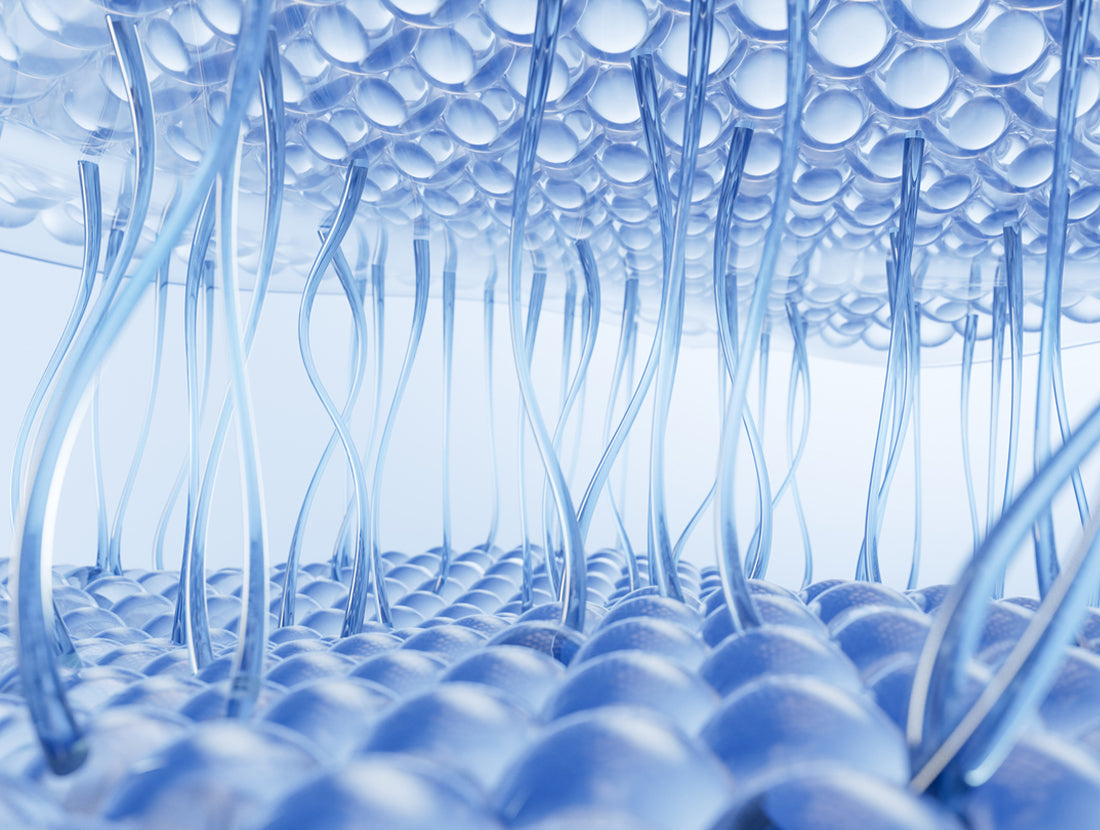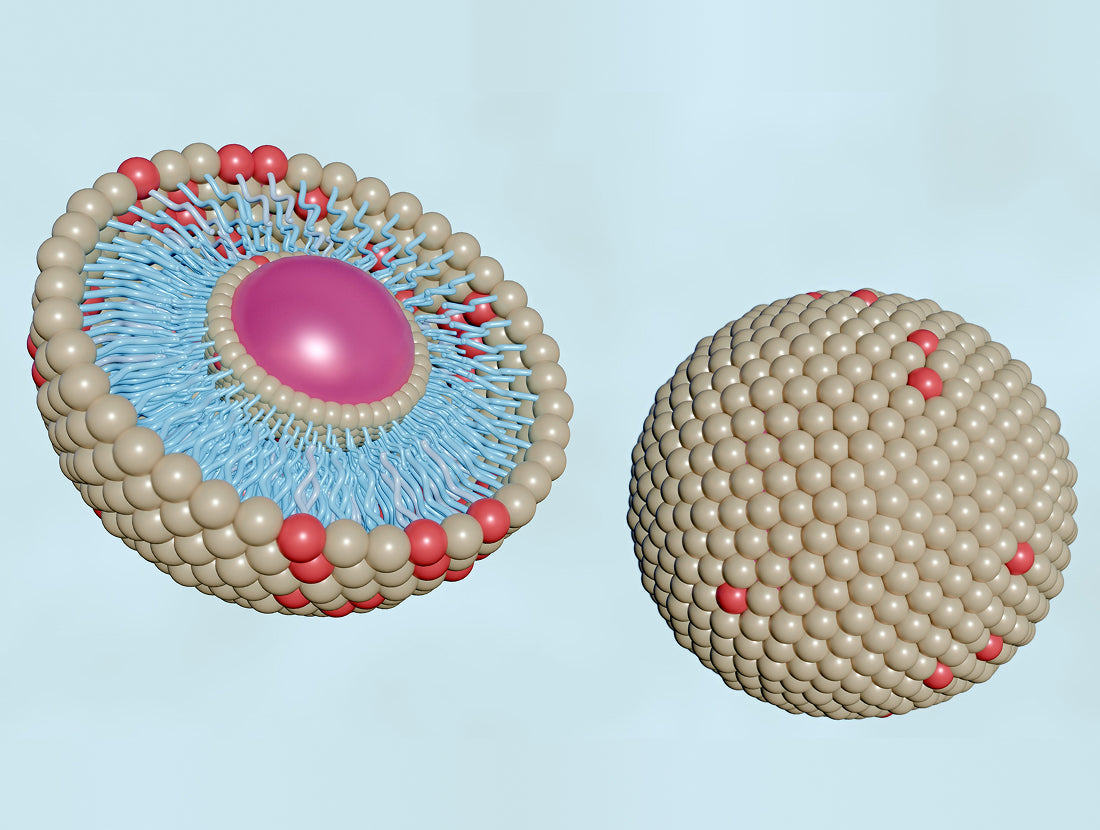From protein supplements to vitamins, collagen is everywhere in the health and wellness space, and skincare is no exception.
It’s likely you have at least a basic understanding of how collagen is part of your skincare journey, but if you’ve ever wanted to know more, we’re here to help.
What is Collagen?
Image Credit: ttsz / Getty images
Collagen is the most common protein found in the human body, comprising almost a third of the proteins spread throughout our tissue. As such it’s the most important building block for muscles, skin, and more.
And, that is collagen’s primary function in the body: forming structure and providing strength to the places we need it, like protective casings around organs.
Image credit: Anna Bergbauer / Getty Images
There are five main types of collagen in your body, as follows:
- Type 1: Comprising the vast majority of collagen in the body, this dense type forms structures in skin, connective tissue, and even bones.
- Type 2: Elastic cartilage, like found inside bone joints
- Type 3: Found in tissues, mostly in hollow organs like the uterus
- Type 4: A non-fiber type of collagen primarily found in the basement membrane, a separating layer in tissue throughout the body.
- Type 5: Found in the Dermal-Epidermal junction of the skin, and other places in the body including the eyes.
Read more about collagen at The Cleveland Clinic
What is Collagen’s role in the skin?
Image credit: Mosterpiece / Getty Images
Collagen is one of the primary building blocks of your skin. When young and healthy, the collagen in our skin is twisted into long, stretchy fibers that span across the dermis and help skin stretch and bounce back to maintain its shape. It also provides the strength in adhesion between the dermis and epidermis, in the Dermal-Epidermal Junction.
Together, with another protein, elastin, it forms a lattice-like structure in the dermis that supports your skin’s structure, making it strong and flexible.
With age, the collagen fibers in skin weaken and eventually can break. It’s a natural process that weakens skin, leaving it more prone to injury and less able to support itself, leading to signs of aging like sagging skin and crepiness.
Image Credit: ttsz / Getty Images
Our bodies naturally produce less collagen as we age, so our ability to replace broken or weakened collagen in the skin becomes more difficult, especially after age 60. Plus, common lifestyle factors like poor nutrition and damage from sun exposure can further weaken the collagen we have remaining in skin.
How to Produce and Protect Collagen in the Skin
Fortunately there are some things you can do to help protect your skin’s collagen supply and boost its ability to create new collagen and strengthen your skin.
-
Wear sunscreen - UV rays are one of the biggest contributors to skin damage and collagen breakdown over time, so lather up the SPF whenever you’re outside. Even if it’s not that sunny or cold, UV rays are still present.

Product recommendations: EltaMD UV Clear, Alastin Hydratint Pro Mineral Sunscreen, Revision Skincare Intellishade Original, Sente Even Tone Sunscreen.
-
Make healthy lifestyle changes - as we’ve discussed before in other blogs about anti-aging strategies, getting on a consistent sleep schedule makes a big difference in your skin’s health. Swapping out processed, sugary foods for ones rich in collagen like nuts, dairy, and fish gives your body better proteins to choose from. Quitting smoking and reducing alcohol consumption will also help your body function its best and not waste energy removing toxins.
-
Eat & use antioxidant and Vitamin C rich products - Free radicals that bind to our skin from air pollution are another big stressor on your skin, and vitamin C is a key ingredient your body needs to build new collagen proteins. You can help your body purge free radicals & produce more collagen by eating more anti-oxidant and vitamin C rich foods like blueberries, strawberries, broccoli, and spinach. For an added boost, add an antioxidant-rich Vitamin C serum and give your skin all the support it needs.

Product recommendations: Alastin C-Radical Defense Antioxidant Serum, Revision Skincare C+ Correcting Complex, Flawless Canvas Free Radical Scavenger, Obagi Professional-C Serum 20%.
-
Stay hydrated - Water is essential for proper functioning in basically every system in the body, so make sure you’re drinking enough daily. Dehydrated skin is stressed skin, and stress kills collagen, so drink up. As an added boost to your skin’s hydration levels, use a hyaluronic acid serum to boost your skin’s ability to retain moisture.

Product recommendations: SkinMedica HA⁵® Hydra Collagen Replenish + Restore Hydrator, Ourself HA Replenishing Serum, Alastin HA Immerse, Sente Hydrate+ Serum, Revision Skincare Hydrating Serum
-
Introduce Peptides to your regimen - In order to build new proteins like collagen, your body needs amino acids, which are protein building blocks. Peptides are one such amino acid that can boost your body’s protein building process, so using products with peptides may help restore your skin’s elasticity.

Product recommendations: Revision Skincare Revox 7, Neocutis Bio Serum Firm, Ourself Ourself Daily Renewal Cream, AnteAGE MD Serum





